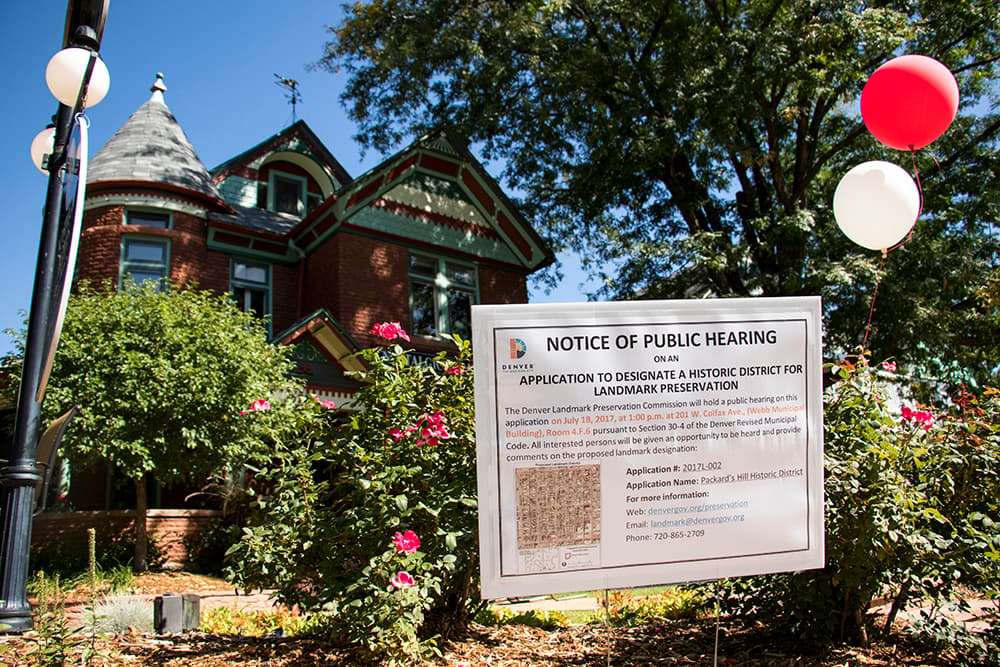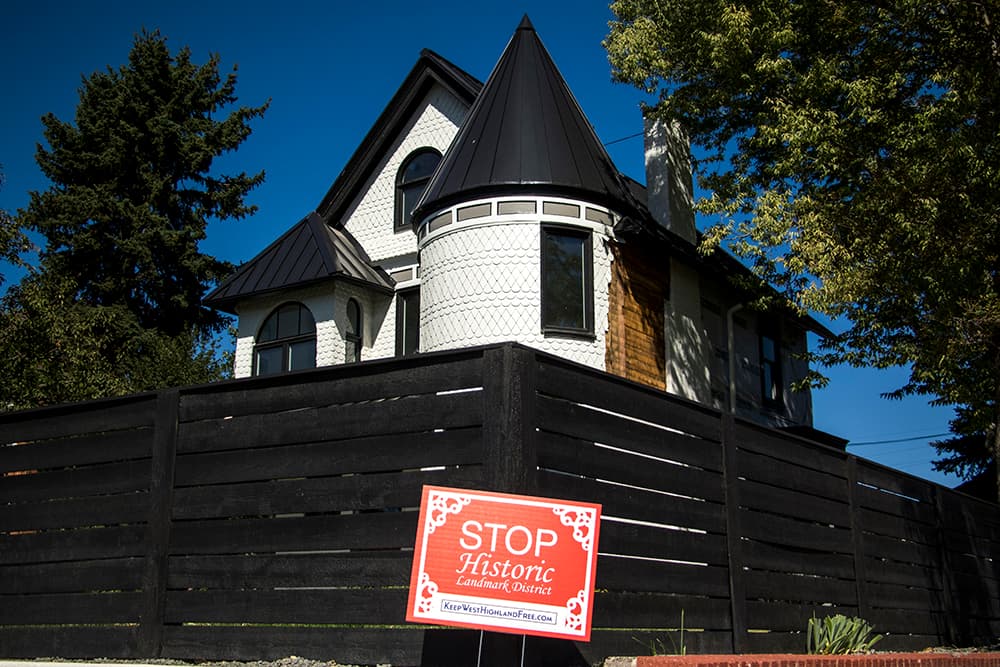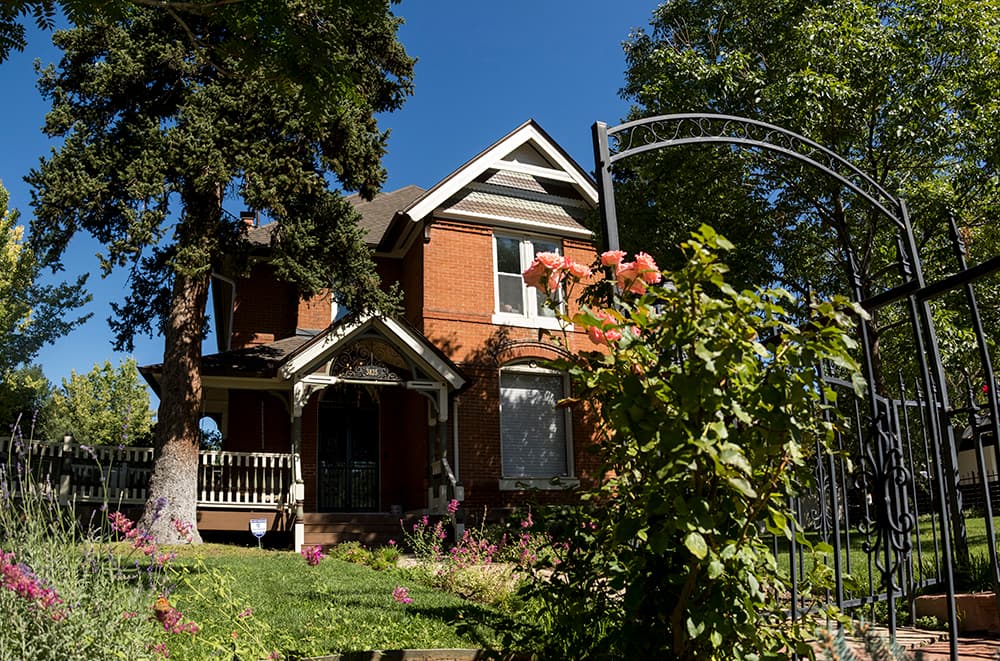
Few would argue with Highland being one of Denver's most historic neighborhoods, but officially designating the area as such is an entirely different matter.
Some residents in the northwest part of the city believe designating the area being dubbed Packard's Hill a historic district would protect the current feel of the neighborhood by preserving 19th Century homes once inhabited by movie actress, area leaders and pioneering women. Others say the move is unnecessary and could infringe on property owners' rights.
Denver City Council is expected to decide Monday, after a public hearing, on whether or not to grant historic designation to the roughly 30-acre Packard's Hill neighborhood.
"The primary focus is for the historical structures that are there to stay there and intact in terms of not being changed beyond recognition," said Marie Benedix. "This is a very special place, thanks to its fabulous architectural integrity and its role in Denver's history — especially the stories it tells about women expanding their roles and opportunities here."
Benedix has been living in a 1908 cottage home on Osceola Street for about a decade. She is one of the residents who during the last several months has been researching the area, working on the historic designation application and talking to residents about the process.
Denver's 53 historic districts get special treatment from the city's Landmark Preservation Commission. The commission looks at building and demolition permits, deciding whether new building planned in these areas are compatible with their older neighbors and if existing structures and features should be kept because of their historical value.
"It is just that additional protection, if you will, for the existing historic homes and the character of the overall neighborhood," Benedix said. "We're lucky we have such a high degree of integrity, and if we wait we'll certainly not have the opportunity to preserve all of that character and we may no longer qualify if the area changes too much."

Packard's Hill isn't seeing an onslaught of demolitions or new, uncharacteristic developments. And there are other city processes, like a zoning overlay, to protect the character of the neighborhood, said Kevin O’Connell.
O’Connell has been living in a 1885 Victorian home on Osceola Street for the last 22 years. He and others using the banner Keep West Highland Free are opposing historic landmark designation.
About 82 percent of the roughly 190 properties in the area contribute to the historic status of the neighborhood based on their architecture, style and the era they were built in, according to the application neighbors filed.
"Regardless of how you feel about preservation, the forcible imposing of these standards on a large group of people who don’t want them is just terrible public policy," O’Connell said. "They're retroactively changing the rules and I don't think that's fair."
The 200 block of South Lincoln Street in Speer was the most recent community granted historic designation from Council during spring 2016. Wolff Place, south of Packard's Hill, was designated in 2006 and Allen M. Ghost, southeast of Packard's, received the status in 2010.
It's uncommon for neighborhoods to apply for designation and not get the green light, according to Historic Denver Inc. The Hilltop neighborhood pulled its application in 2007 after facing opposition from neighbors and today the community is a notable battleground for preservation versus property rights.
"On one level it's very simple. People don't want to have a big monstrosity built next to their house," O’Connell said. "Nobody wants to look out their window at a giant wall. I understand that."
"On another level, we seem to be entering an age of entitlement where people feel perfectly free to tell other people what they can or can't do. I think that's potentially problematic."

Historic Denver wishes historic designations would stop splitting neighborhoods, said John Olson, director of preservation programs.
"I am always hopeful they're going to lose the controversy aspects once people see what it achieves and once they're actually living in a historic district and they realize they can do all the things they are fearful they're not going to be able to do," Olson said.
Historic Denver, a nonprofit focused on preservation, is in support of the Packard's Hill application and believes a strong majority of residents in the area are too, Olson said.
Even if the historic designation does go through, it doesn't mean new buildings won't come into Packard's Hill, he said.
"There's room in Denver for us to save our identity and save what makes unique as a city — our historic fabric — but at the same time accommodate density, new growth and modern design within that framework," Olson said. "You have people on both sides saying it's either a free for all or we shouldn't change anything. Well, neither of those are correct."
Subscribe to Denverite’s newsletter here.
Business & data reporter Adrian D. Garcia can be reached via email at [email protected] or twitter.com/adriandgarcia.












